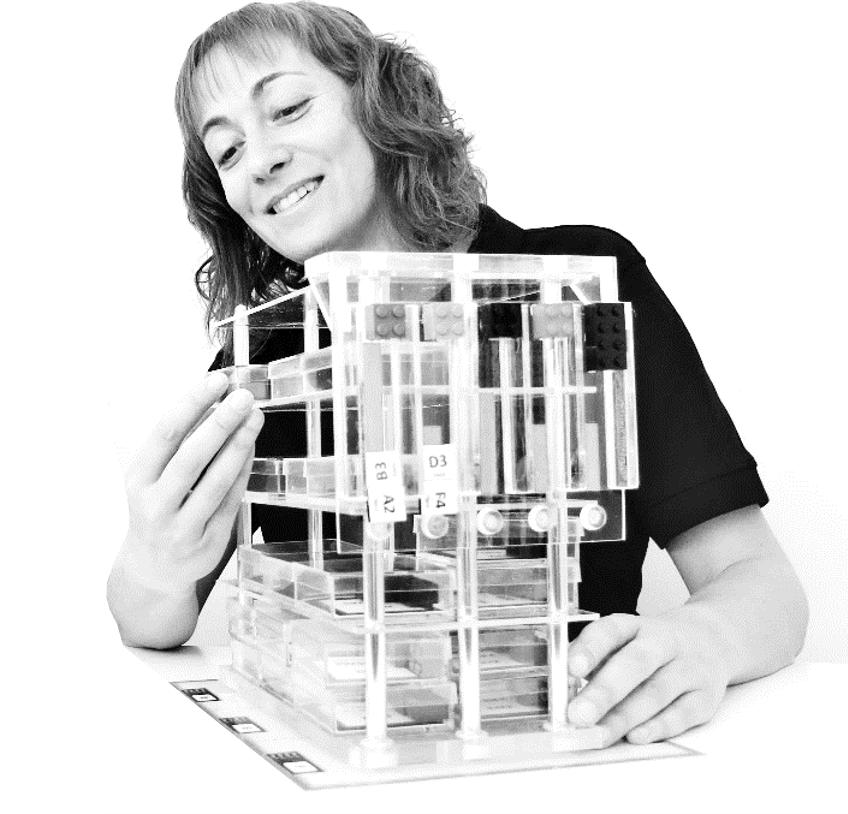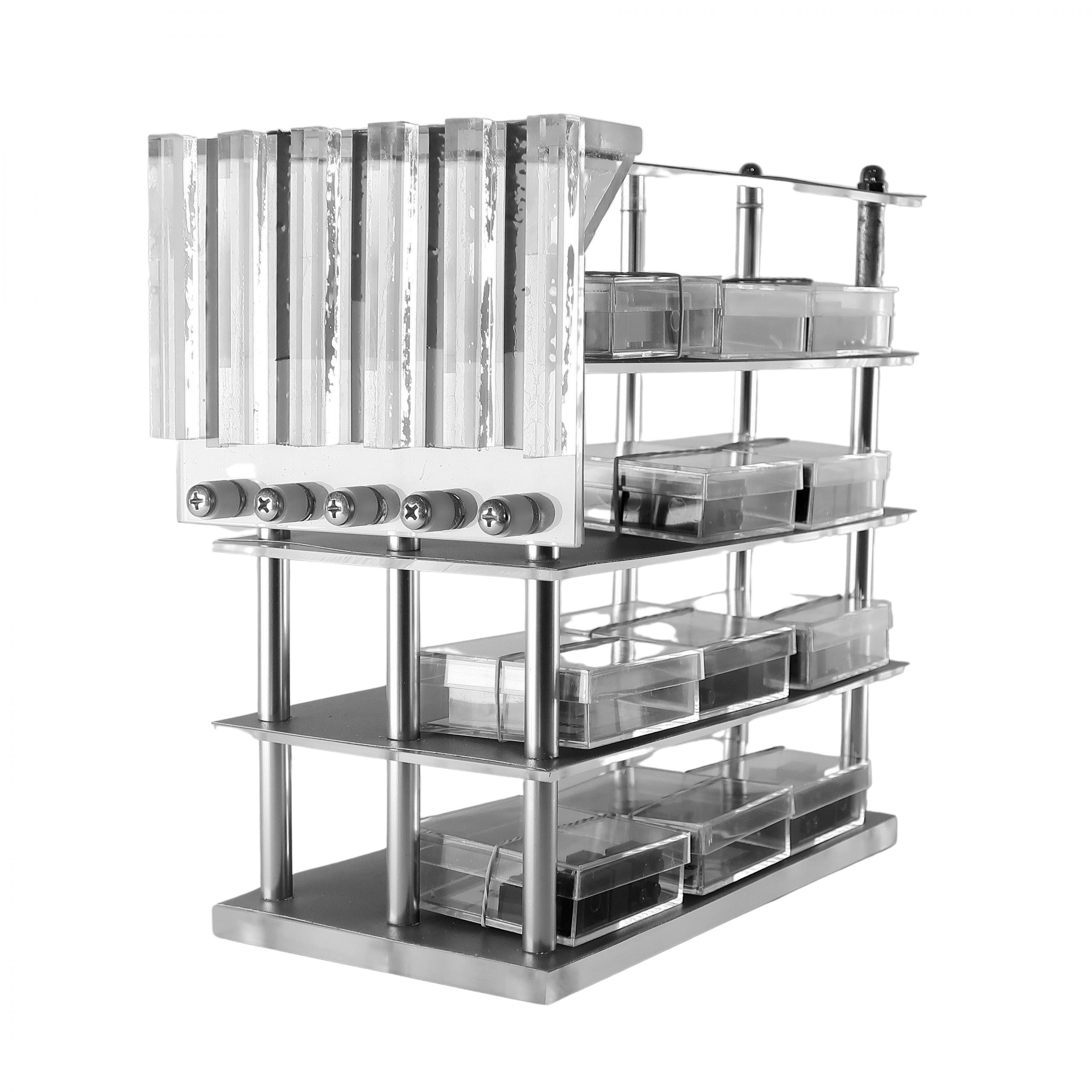WHY WE NEED THIS SIMULATION
Lean Warehouse is the simulation you need to understand the role of the warehouse in today's logistics
The game shows the evolution of a warehouse through three phases of improvement in which different techniques are applied: 5S, work standard, workload analysis, flow creation, ABC studies, batch and packing unit adjustment. All of these techniques together provide an understanding of the warehouse improvement process.
PRICE: 750 EUR + VAT
WHAT ALLOWS US TO TRANSMIT
Efficient warehouse to deliver what the customer needs
The warehouse tends to be like one of the least standardised areas of the company. The optimisation of storage and handling operations involves the analysis of each and every element involved in this process. The game is played in three phases. In each of them, different Lean techniques are applied that contribute to the progressive improvement of results: 5S, work standards, workload analysis, flow creation, ABC studies, batch and packaging unit adjustment. All of them together allow to understand the process of warehouse improvement. At the end of the session, participants will be able to understand the systematic application of the Lean methodology in logistics environments and the benefits associated with these improvement activities.
Identifying process flows and operator workloads. Observation of the process by tracing all aspects related to the preparation of the product.
Standardising incoming, internal and outgoing materials operations. Detecting all aspects related to information management that may have an impact on materials management.
Analysing for each of the references, the difference between the incoming batch and the packaging units compared to the outgoing batch and the packaging units.
Implementation of physical preparation phases in a step-by-step and gradual manner to adjust the stored quantities to the material output rates and frequencies.
Defining the guidelines and standards of action necessary to train and qualify the process personnel. Implementation of Token board for FIFO management.

In the current framework, production centres must focus their activity on product transformation and value creation, while storage and transport centres can take on part of the logistical activities that complicate the management of production centres. To achieve this functional division, it is common sense that each warehousing company must have a clear view of its customers' needs as well as its functions within the supply chain, something in which traditionally they have not exactly excelled, since they assumed that their function should focus exclusively on the operations of receiving, storing and dispatching the product.
The game helps everyone involved to be part of the solution
METHODOLOGY STEP BY STEP
The development of a phased training is revealing and instructive because it helps to generate knowledge in each of the phases, as participants identify the effects of every change introduced with respect to the previous phase. The Apex Mindset games are structured as follows:
1 Introduction
Definition at the beginning of each phase of the challenge and the scope of the problem faced by the team
2 Training
Explanation of the theoretical contents to be applied to solve the problem posed by the game
3 Application
Development of the game phase, applying the concepts explained in the training
4 Learning
Review of the results and assessment of the contribution of each of the concepts introduced. Moving on to the next phase

1. Introduction
2. Training

3. Application
4. Learning
PRICE: 750 EUR + VAT
The game helps everyone involved to be part of the solution
The trainer should be an expert in facilitating games and simulations with experience in leading improvement teams.
Game to be played in a large room so that players and observers can share and participate in the experience.
The game is designed to take between 2 and 4 hours, depending on the content of the training.
All in one box: what you need for the facilitation and development of the game is all included inside the product box.
